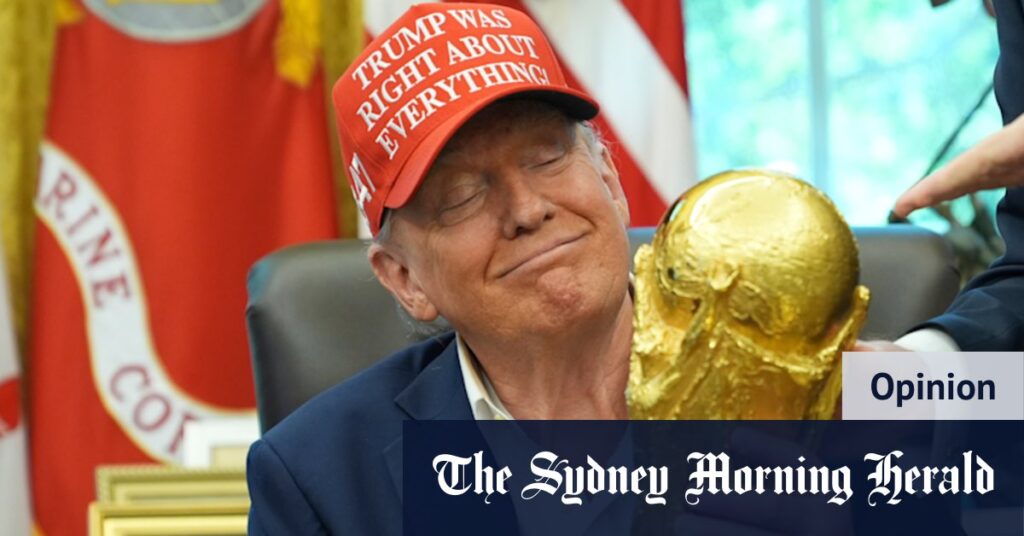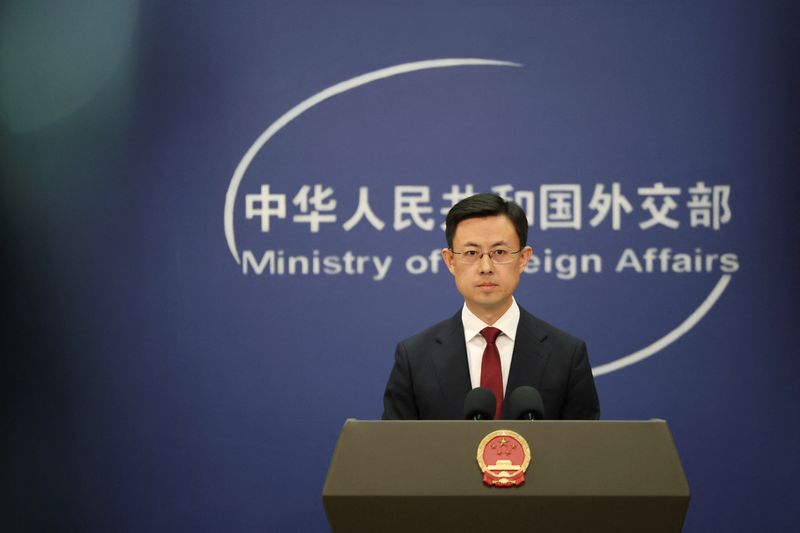
Few leaders arrive at the White House empty-handed these days. In a dramatic gesture, UK Prime Minister Keir Starmer recently presented President Donald Trump with a letter from King Charles, inviting him for an unprecedented second state visit. This act of near-feudal reverence underscores the increasingly servile nature of the UK’s “special relationship” with the United States, a dynamic that persists regardless of who occupies the Oval Office.
Gifts and compliments have become the currency of diplomacy with Trump. Earlier this month, Apple CEO Tim Cook gifted the president a glass ornament mounted on a 24-carat gold base. Similarly, Archbishop Elpidophoros of the Greek Orthodox Church presented Trump with a golden cross and likened him to “the great Roman emperor Constantine the Great.” The diplomatic gesture of recommending Trump for the Nobel Peace Prize has become as routine as bringing a bottle of wine to a dinner party.
Meanwhile, the absence of Australian Prime Minister Anthony Albanese from a face-to-face meeting with Trump has been a topic of media speculation. However, it spares Albanese from the spectacle of the deferential displays that have become the norm among international and corporate leaders in Trump’s presence.
The Rise of Diplomatic Sycophancy
If flattery were an international sport, NATO Secretary General Mark Rutte might be a leading contender. Ahead of a crucial NATO summit in June, Rutte sent a series of effusive texts to Trump, praising his decision to bomb Iran’s nuclear sites. “Mr President, dear Donald,” Rutte wrote, “Congratulations and thank you for your decisive action in Iran, that was truly extraordinary, and something no one else dared to do.” Rutte’s sycophancy reached its peak when he referred to Trump as “daddy” during their meeting in Brussels.
This behavior is not new to Trump’s presidency. During his first term, the late Japanese Prime Minister Shinzo Abe gifted Trump gold-plated golf clubs and nominated him for the Nobel Peace Prize for a nuclear disarmament agreement with North Korea that was still in negotiation. However, the lengths to which international leaders go to flatter Trump have become increasingly pronounced.
Does Flattery Yield Results?
The critical question remains: does this strategy of flattery work? Mark Rutte can argue that it has, as discussions of America’s potential withdrawal from NATO have faded, and the alliance has been strengthened by increased defense spending commitments. Keir Starmer, in turn, secured a UK-US trade deal and persuaded Trump not to abandon Ukraine.
“The strategy is to flatter Trump, to indulge his pet obsessions and never to contradict him,” wrote Gideon Rachman, chief foreign affairs commentator for the Financial Times. “Once those foundations are laid, Trump’s interlocutors try to push the US president in their direction.”
In Washington last week, this meant nudging Trump towards security guarantees for Ukraine, a stance he had previously avoided.
Historical Context and Expert Opinions
The practice of currying favor with powerful leaders is not unique to Trump’s presidency. Throughout history, leaders have used gifts and flattery to gain favor and influence. However, the scale and intensity of these gestures in the current geopolitical climate are noteworthy.
Experts suggest that such sycophancy may have short-term benefits but could undermine long-term diplomatic relationships. “While flattery might open doors, it risks eroding respect and credibility,” noted Dr. Sarah Thompson, a professor of international relations. “Leaders must balance the act of diplomacy with maintaining their integrity and the interests of their nations.”
Looking Ahead: The Implications of Flattery
As world leaders continue to navigate the complexities of international diplomacy, the strategy of using flattery to influence Trump will likely remain under scrutiny. The effectiveness of this approach may vary, but its prevalence highlights the unique challenges posed by Trump’s leadership style.
Moving forward, it will be crucial for leaders to assess the long-term implications of their diplomatic strategies. While flattery may yield immediate gains, the sustainability of such tactics in fostering genuine partnerships remains questionable.
As the global political landscape evolves, the art of diplomacy will continue to adapt, with leaders striving to balance respect, influence, and integrity on the world stage.







